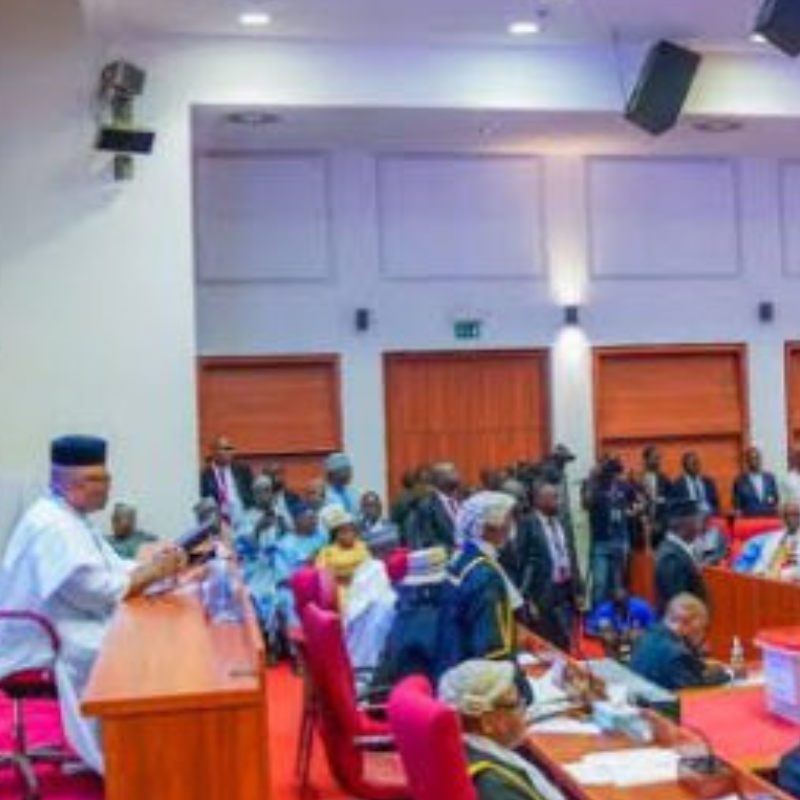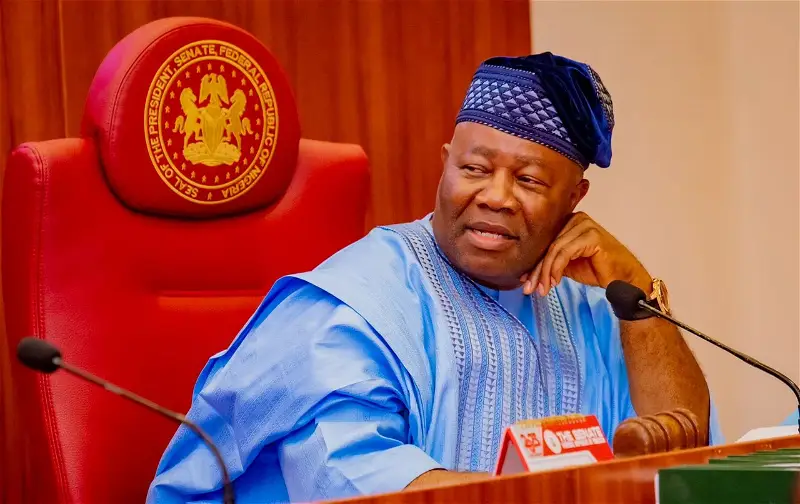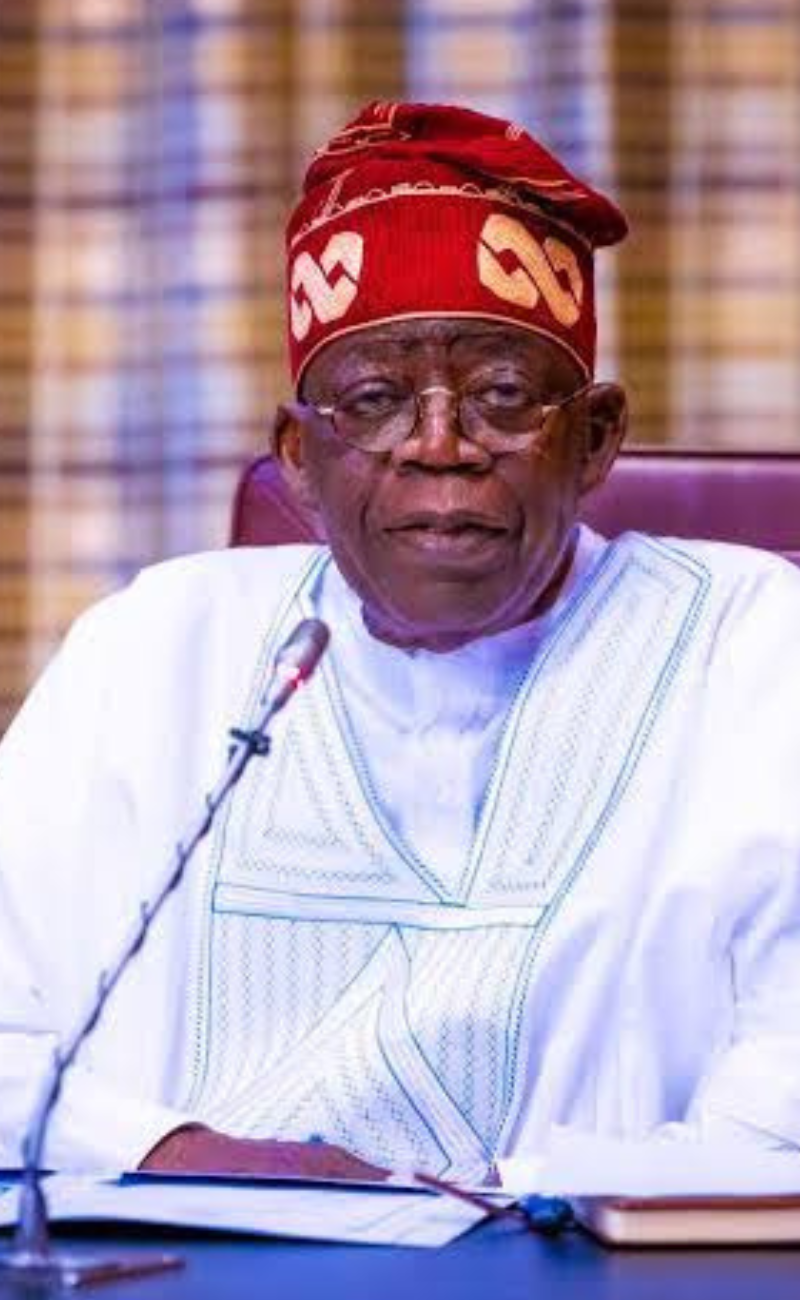As Nigeria navigates its way through turbulent economic waters, a concerning trend has begun to solidify: a growing debt addiction.
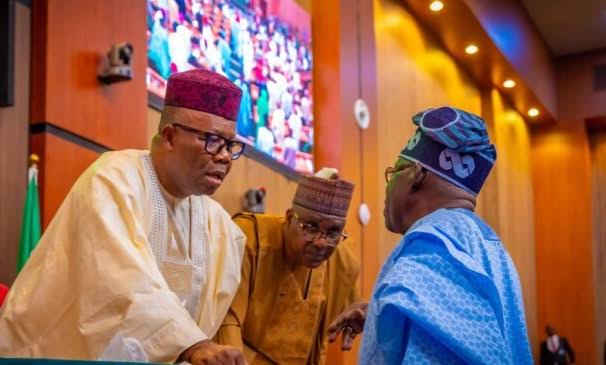
Since President Bola Ahmed Tinubu assumed office in May 2023, his administration has made borrowing a cornerstone of his fiscal strategy justified, repeatedly, as necessary to stabilise the economy, cushion vulnerable citizens, and finance key infrastructure.
Yet, the rapid accumulation of debt and the near-automatic approvals granted by the national assembly raise critical questions about long-term sustainability, legislative independence, and Nigeria’s fiscal future.
In two years, President Tinubu has secured multiple layers of borrowing approval – foreign and domestic-pushing Nigeria’s debt stock toward unprecedented levels, while raising questions about long-term economic stability, intergenerational equity, and the integrity of legislative oversight.
Public debt burden under Tinubu
These borrowings include but are not limited to the following:
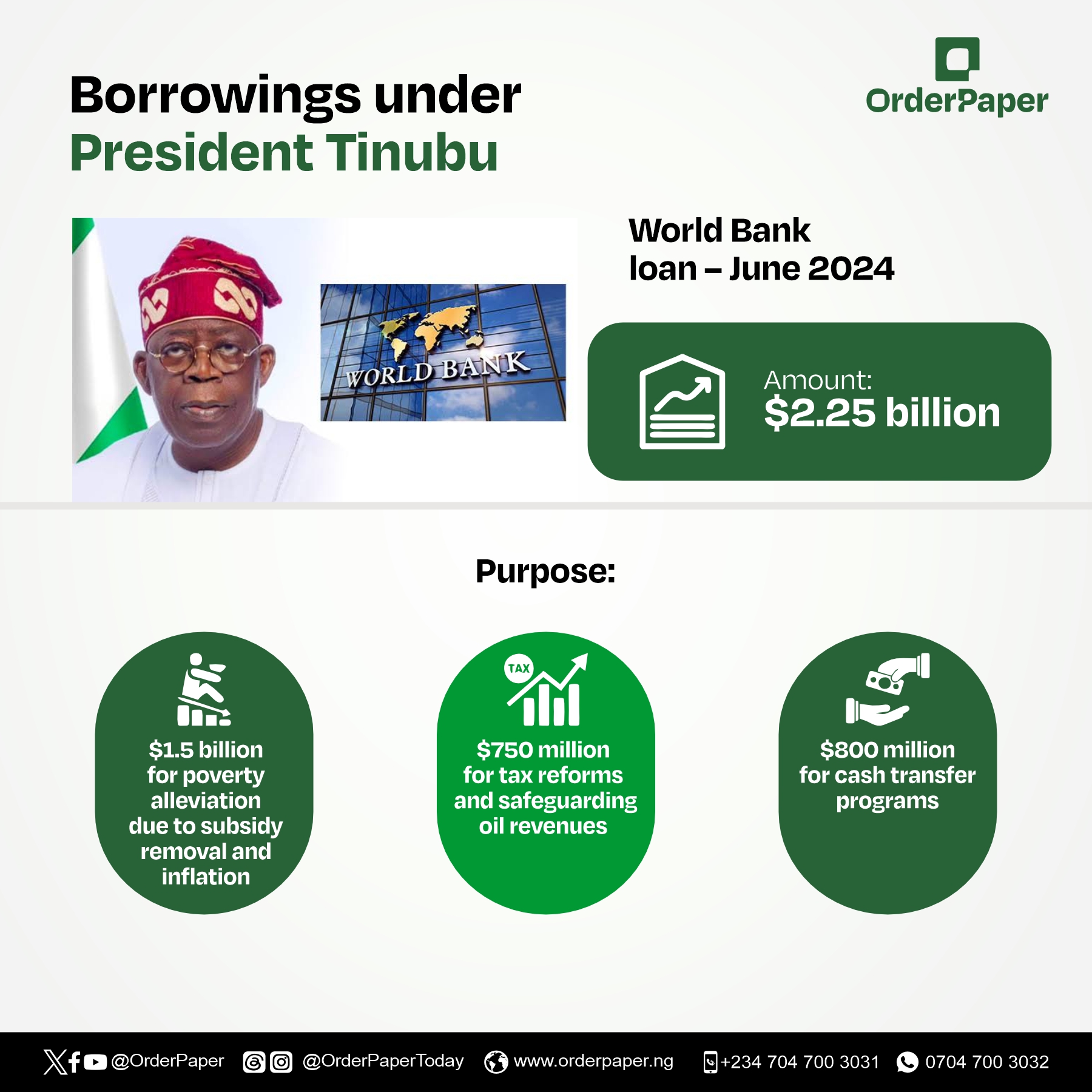
World Bank loans – June 2024
In one of the administration’s largest deals, Nigeria secured a $2.25 billion loan from the World Bank in June 2024. The loan was split across several interventionist aims:
•$1.5 billion was designated for mitigating the harsh effects of fuel subsidy removal and rising inflation ostensibly targeting poverty alleviation.
•$750 million was earmarked for tax and fiscal reforms, including efforts to safeguard oil revenue and improve non-oil revenue collection.
•An additional $800 million had already been channelled into a cash transfer programme earlier in the year, reportedly benefiting millions of low-income households.
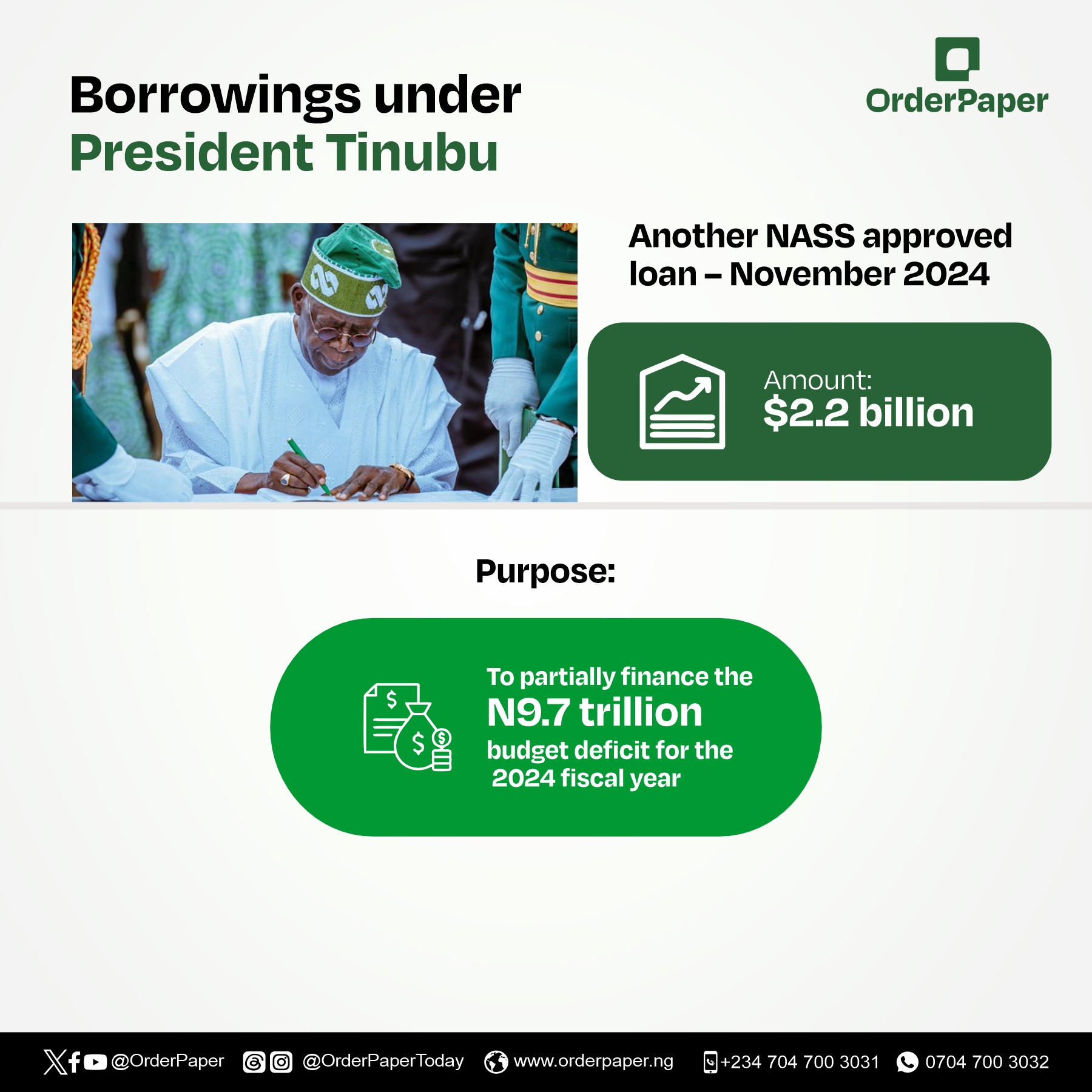
Budget support loan – November 2024
As part of efforts to finance the 2024 fiscal year, the national assembly in November 2024, approved another loan of $2.2 billion. This was to partially offset the ₦9.7 trillion deficit in the 2024 budget, one of the country’s most deficit-heavy appropriations to date.
The loan, again, was justified as essential. Yet, the underlying causes of the deficit, persistent revenue shortfalls, rising debt servicing costs, and expanding recurrent expenditure remain unaddressed. Instead, borrowing continues to serve as a temporary fix.
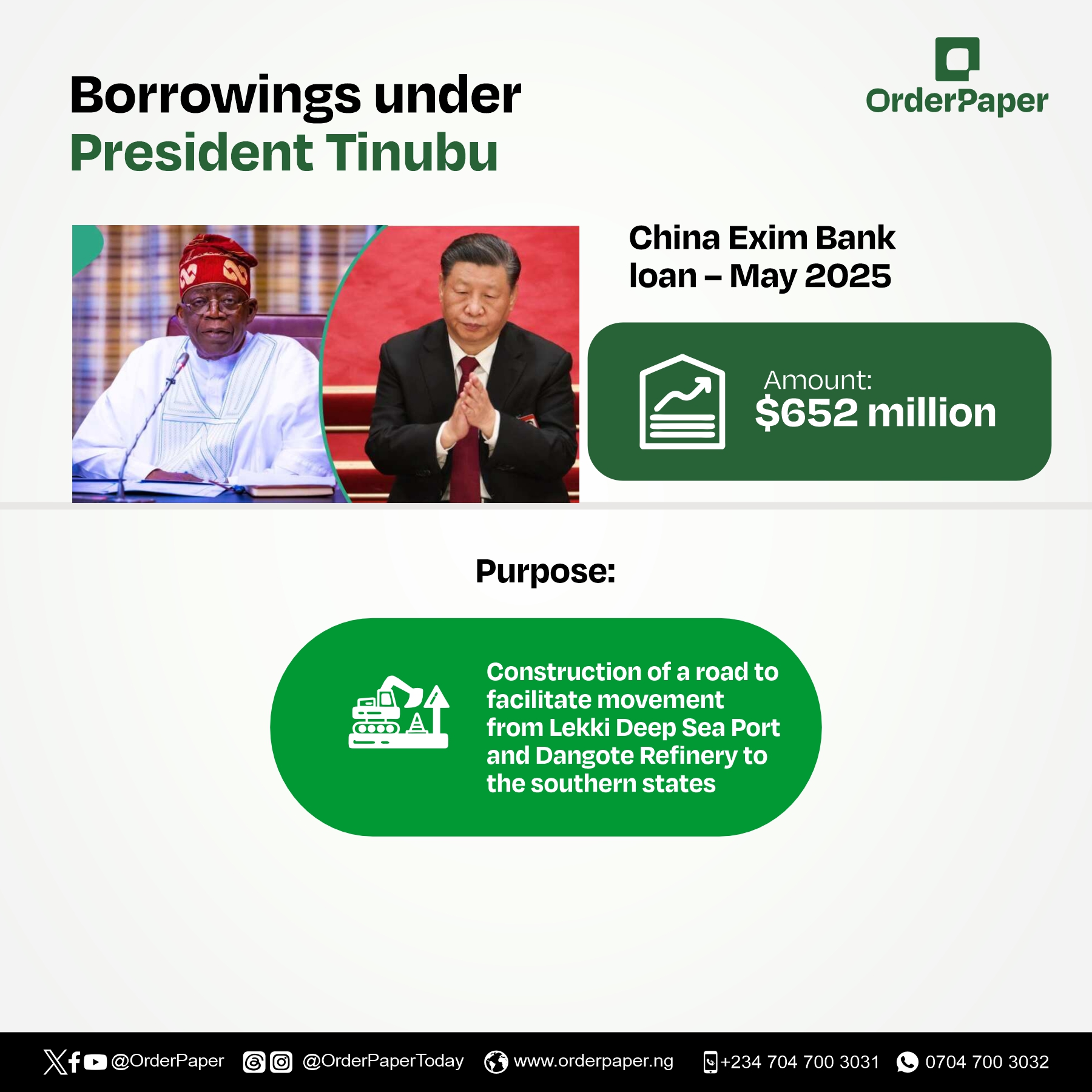
China Exim Bank loan – May 2025
Most recently, in May 2025, an approval of $652 million loan from the China Exim Bank was made. The loan is aimed at constructing a strategic road linking the Lekki Deep Sea Port and the Dangote Refinery to major transport corridors across southern Nigeria.
Although infrastructure development is crucial for economic diversification and logistics efficiency, the loan adds to the swelling external debt portfolio. Additionally, Nigeria’s increasing reliance on Chinese loans raises concerns about sovereignty clauses and opaque contractual terms, problems that have plagued similar loan agreements across Africa.
READ ALSO: Nigeria’s budget and broken legislative oversight | ANALYSIS
A fast-rising debt burden
By the end of 2023, Nigeria’s public debt had risen to about ₦97.3 trillion, a 24.33 percent increase from ₦87.4 trillion in the second quarter of the same year, according to the Debt Management Office (DMO). The figure includes domestic and external debt owed by the federal and state governments, as well as the Federal Capital Territory (FCT).
As of December 31, 2024, Nigeria’s total public debt stood at N144.67tn, according to data from the DMO. This represented a 48.58 per cent rise from the amount recorded at the end of 2023
Much of this debt accumulation was driven by the Tinubu administration’s fiscal policy of expanding expenditure to stimulate growth, amid structural challenges such as fuel subsidy removal, currency devaluation, and revenue shortfalls.
While economic theorists argue that deficit spending can catalyse development in emerging economies, Nigeria’s borrowing pattern under Tinubu appears to lack clear productivity anchors and is being increasingly sustained by the issuance of promissory notes, Eurobonds, and short-term domestic instruments with high interest rates.
The national assembly: rubber stamp or strategic partner?
The national assembly under Senate President Godswill Akpabio and House Speaker Tajudeen Abbas has approved nearly every borrowing request forwarded by the executive without as much as a whimper.
Experts raise red flags
Dr. Aliyu Ilias, CSA Advisory, told Parliament Reports that while borrowing is not inherently bad, Nigeria’s is borrowing is problematic.
“Borrowing for an economist like me is not bad, but I have issues with the way we are borrowing to pay pensions—which is not a good one. Any borrowing that does not go into a visible capital project that can in the long run benefit people is a problem.”
He warned that using borrowed funds to pay recurrent costs like pensions reflects fiscal desperation, not planning.
“We may say we have money in the economy, but that is not enough to go and borrow to pay for pension. So any borrowing must be project tied loan,” he added.
Dr. Isah Imam Paiko, senior legislative aide to Sen. Sani Musa, echoed similar concerns. While he recognised the historical deficit nature of Nigeria’s budgets, he warned of the long-term consequences of unchecked borrowing, especially in a volatile foreign exchange environment.
“Borrowing is not bad but depend on whether it has been used judiciously or for what it was intended for.
“We do not encourage borrowing but if circumstances arise then we have no option than to grant the presidency the permission to borrow but we do not encourage it because loan in the long run, has very negative consequences for the economy because it has a serious effect, especially on some macroeconomic variables like employment, exchange rate and even economic growth and it incapacitates the country too in terms of our future expenditure unless we want to see how we can increase the internally generated revenue.”
He highlighted that the instability of the naira makes repayments more burdensome and diminishes the country’s future fiscal capacity.
“We heard recently that the federal government settled some loans, like from the World Bank, but as we’re settling, we’re still borrowing. That’s a serious concern. The national assembly must look to see how we can look for ways and means to sustain and finance our budget instead of resulting into borrowing,” he added.
Hidden costs and future risks
The short-term liquidity provided by these loans masks deeper structural vulnerabilities. With much of the debt service obligations denominated in foreign currencies, Nigeria remains dangerously exposed to exchange rate volatility.
The naira’s depreciation – ₦1,655 to ₦1,738 per dollar as of May 2025 means that external debt obligations become increasingly expensive to service.
Impact on future generations
Young Nigerians who are already grappling with unemployment, underfunded schools, and inadequate healthcare may bear the heaviest burden. Without deliberate fiscal reforms, improved public sector efficiency, and investment in productive sectors, the current approach is akin to borrowing to survive rather than borrowing to grow.
Other key risks include;
•Debt overhang: With so much revenue committed to debt service, future governments may inherit little fiscal space for innovation or crisis response.
•Fiscal fragility: Heavy reliance on debt in an economy plagued by oil dependency, weak taxation, and a volatile currency risks macroeconomic instability.
•Governance credibility: Constant borrowing without transparent impact assessments erodes public trust in both the executive and the legislature.
Without necessary reforms, Nigeria’s debt spiral may continue unchecked, consuming revenues, weakening institutions, and dimming the promise of development.
In the end, the question remains: How much more can Nigeria borrow before it breaks?


